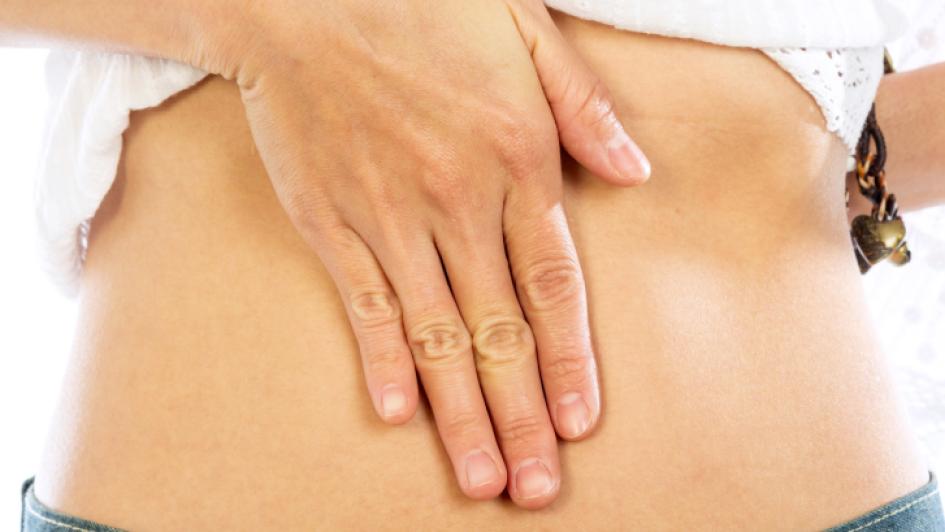The Underlying Cause for Many Digestive Issues May Be SIBO

Published
Digestive issues are a common complaint in today’s fast-paced society. Many of us want to eat better but just can’t find the time, and meanwhile stress caused by our day-to-day lives can take a further toll on our physical health. You might blame digestive issues like gas, bloating, diarrhea, abdominal pain and even irritable bowel syndrome (IBS) on these stressors, but they could be underlining a more serious health concern: small intestine bacterial overgrowth (SIBO).
SIBO is a relatively new diagnosis, although it is not a new problem. Some studies estimate that 40 percent to 60 percent of people with IBS actually have SIBO when tested for it. In addition to the most obvious symptoms listed above, other symptoms can include:
- Constipation
- Flatulence
- Abdominal pain
- Dyspepsia (indigestion)
- Malabsorption
- Weight loss
- Malnutrition
- Anemia (usually low B-12)
So What is SIBO?
Our intestine is normally full of bacteria, but it congregates in much larger quantities in the large intestine compared with the small intestine. With SIBO, the small intestine often has more of the bacteria normally seen only in the large intestine. The overgrowth of bacteria diminishes the small intestine’s ability to do its job properly, making it harder for your body to digest food and absorb nutrients. Over time, that can lead to more long-term symptoms including leaky gut, food allergies, autoimmune diseases or skin disorders.
What Are the Diverse Risk Factor?
When determining whether you might have SIBO, a naturopathic practitioner will note not only your symptoms, but also risk factors that are common causes of SIBO. Those include:
- History of intestinal infections such as food poisoning
- History of abdominal surgery
- Diabetes
- Anatomical issues
- Motor neuron problems
- Diverticula
- Celiac disease
- Chronic pancreatitis
- Intestinal fistula
- Hypochlorhydria
- Ehlers-Danlos syndrome
If your symptoms and risk factors signal that you might have SIBO, your naturopathic doctor may order the lactulose breath test to help determine your diagnosis. The results of your breath test also will help to formulate a treatment plan tailored specifically for you.
Diet is Key
Diet is often a part of the treatment, as some foods are more likely to inflame the small intestine, while others can help it heal faster. You do not heal by just eliminating foods. You heal with good nutrition. SIBO patients are often encouraged to increase their intake of omega-3 fatty acids, zinc, vitamin A-rich foods, glutamine-rich foods and supplements and bone broth, while also decreasing foods that are high in what are known as FODMAPS, which stands for Fermentable Oligosaccharides, Disaccharides, Monosaccharides and Polyols.
FODMAPS are components of plant-based foods that are digested by bacteria and if you have an overgrowth of bacteria in the small intestine, they are going to get really energized by those plant components and that is where the digestive symptoms come from. FODMAPS, in general, are difficult for your body to digest, but if you decrease your intake of these foods and your digestive issues decrease, it could be an indicator that you have SIBO.
Some common examples of FODMAPS include:
- Avocadoes
- Onions
- Garlic
- Asparagus
- Apples
- Cherries
- Watermelon
- Legumes
- Milk because of lactose
Dietary changes are almost always necessary and are a very important part of treatment. In addition to diet, a patient may be given herbs or medications to stimulate motility of the small intestine after eradication of the bacteria is complete.
Treatments a naturopathic doctor may recommend
- Antibiotics, typically for a duration of two weeks.
- Herbs, typically for six to eight weeks.
- A liquid-based elemental diet of three “shakes” per day for 14 days.
It is important to make sure that the eradication is complete before moving onto the next phases of treatment to prevent SIBO from retuning. This often includes dietary changes and treatments to improve gut motility. Acupuncture also can help with some of the symptoms of SIBO, such as constipation and abdominal pain. People with SIBO often have other health complaints that exacerbate their symptoms such as stress, anxiety and other digestive disorders which acupuncture can address. Acupuncture in conjunction with naturopathic medicine is very helpful, however, acupuncture alone is unlikely to cure SIBO.
Can’t I Just Take Probiotics?
If you believe all of the hype around probiotics, you’d think they could heal anything. But SIBO is one disorder they usually worsen. With SIBO, you have an overgrowth of pathobionts – the bacteria that are not good. Think of it like you’ve got a bunch of bad bacteria having a party in the gut. Then if you add good bacteria, sometimes they just join the party and make it worse since they're in the wrong place. Some people feel better with probiotics, but the vast majority will get worse. However, once you’re in recovery mode, your team may consider a probiotic.

